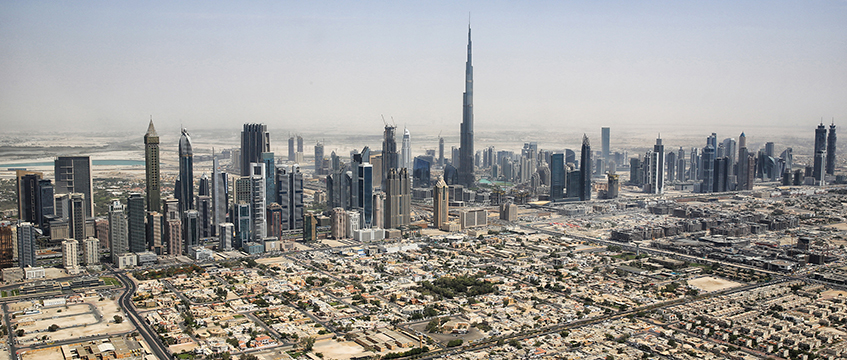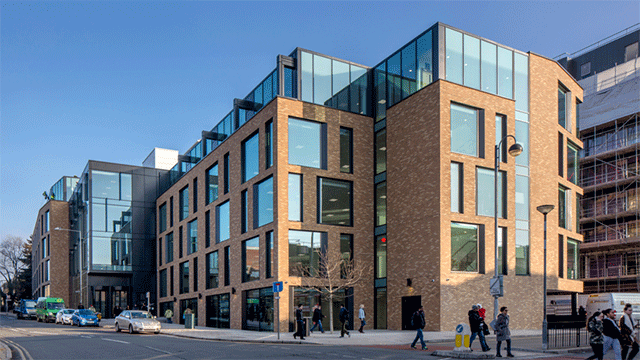Middle East Real Estate Forum: A slowing rate of decline across all sectors of the Dubai real estate market suggests increasing stability and the expectation of the market bottoming out before the end of 2017 is strengthening, writes Faisal Durrani, head of research at Cluttons.
While local economic drivers in Dubai may appear robust, regional and global economic uncertainty has undoubtedly curtailed domestic growth in the residential market. Despite this, the off-plan residential sales market has remained resilient and in fact accounted for 53% of all deals in 2016, suggesting that investor confidence remains strong. Clearly this has been aided by some exceptionally favourable payment plans that stretch beyond handover, negating the need for financing from the get-go, in addition to attractive gross rental yields.
Despite the emerging focus on the residential investment market, tenant demand remains muted and has undoubtedly eased over the last 12 months. This contributed to the 9.9% drop in average rents last year. The rate of creation of senior level executive positions has fallen and this is reflected in the lower level of enquiries and budgets we are recording. The redundancy programmes in the city’s finance and banking sector and oil and gas sector have all but run their course, but the weak global outlook is putting other key sectors under pressure, including the hospitality and aviation sectors, both of which are long standing and historic cornerstones of economic growth. The rapid and sudden strengthening of the US dollar over the last nine months has added to the challenges faced by the property market.
While the short-term prospects appear relatively subdued, our view is that the residential rental market’s fortunes remain tied to the looming 2020 World Expo. At this stage, the mega event is one of the primary upside risks to our outlook. We know from experience that the lag between the take up of office space and the subsequent impact on the residential rental market is usually six to nine months. Construction contracts worth AED11bn (£2.3bn), linked to the Expo, are expected to be announced throughout the course of 2017, driving up the rate of job creation and tenant demand in its wake, but this is not expected for another two to three quarters at least. With this of course comes a tremendous opportunity for developers to cater to a growing middle income segment of the population, whose housing needs are yet to be decisively addressed or catered for. Similarly, mega projects such as the $32bn Al Maktoum International Airport expansion, the $7bn Mall of the World, the $1bn Tower by Emaar and the $60bn Mohammed Bin Rashid City suggest that demand will return, particularly for more affordable homes.
However before the “Expo effect” ripples through the market, we expect that rents will continue moderating during 2017, with an average decline of 5% to 7% likely over the course of the next six months. A key factor in the rental market’s fortunes will be its ability to absorb the strengthening stream of buy-to-let homes, which has already upset the delicate supply-demand equation. Any impact on the sales market will likely follow, however for now we anticipate capital values will moderate by a further 5% on average before there is the potential for a more stable picture to emerge towards the end of 2017.
Office market
Uncertainty stemming from the proposed introduction of a value added tax is causing some nervousness in the market. For many international occupiers, it is likely that this is something they will be able to take in their stride, given that they are used to taxation regimes in their own home markets; however, for international occupiers from the UK, or Europe, the prospect of a 5% tax on rental payments, combined with a rise in operational costs fuelled by the strength of the US dollar, may dampen take up activity in the short to medium term. It remains unclear at this stage whether firms operating within free-zones will be exempt from any potential VAT charges, however, it is our expectation that any new tax will be applied across the board to limit an exponential rise in requirements for free-zone office space.
In general, however, Cluttons believes the overall slowdown in activity levels has resulted in headline rents dipping back marginally.
High demand areas such as TECOM’s Internet City and Media City, in addition to core locations within the Dubai International Financial Centre remain well let, with stable rents. A limited supply pipeline in both markets is clearly supporting the stability in rents.
The sector likely to drive activity in the medium term is the technology-media-telecoms sector, which continues to expand at a rapid rate. This has in part been bolstered by the government’s heavy investment in R&D incubators, which is fuelling expansion in this sector which looks set to deliver the next wave of growth for the emirate’s economy.
Read more from the Middle East Real Estate Forum >>











